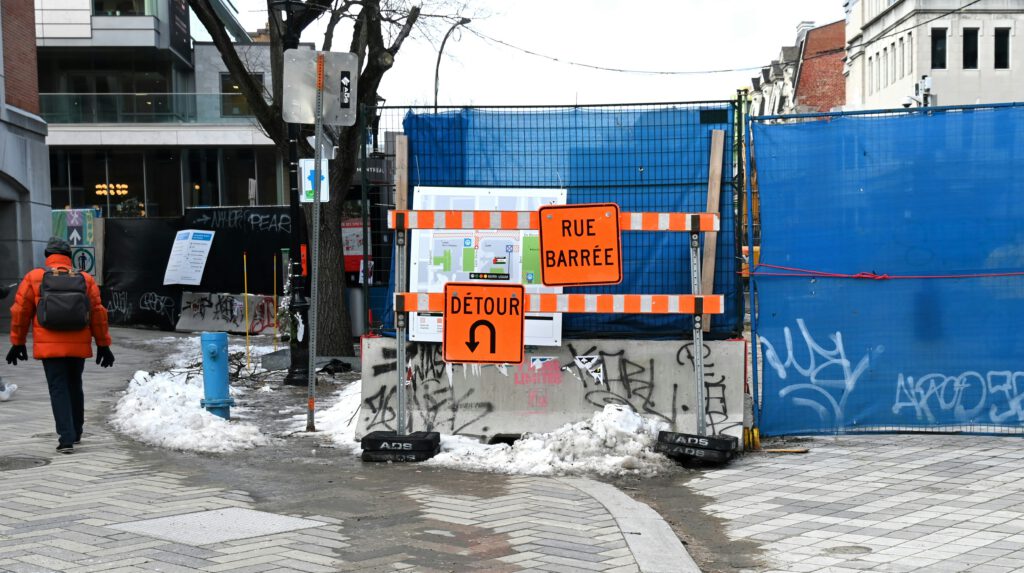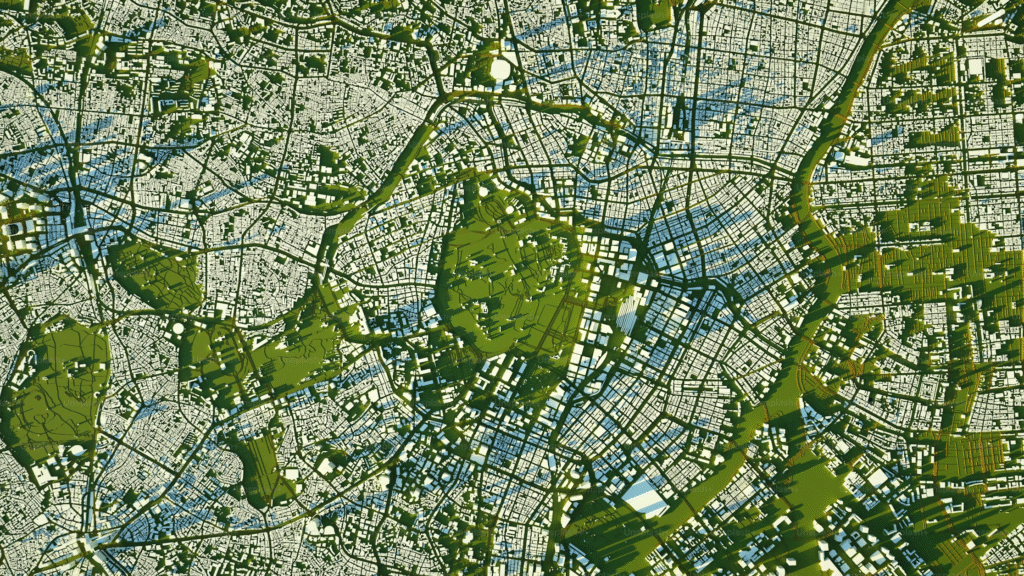If you’re buying or selling property in Quebec, you’ve probably heard the term certificate of location more than once. It’s one of those documents that everyone knows they need, but not many people truly understand.
What does it actually show? Why is it so important for notaries, lenders, and buyers? And how can something as technical as a surveyor’s report make or break your real estate transaction?
In this article, we’ll break down everything you need to know about the certificate of location: what it is, what’s included, why it matters, how much it costs, and how to get a new one.
What is the certificate of location?
The certificate of location is a document prepared by a land surveyor that includes a detailed plan and a written report about the current state of a property. The certificate of location typically covers 4 key areas:
- Boundaries and structures: The land, the buildings on it, and how they align with official property lines.
- Municipal by-laws: Whether the property complies with local zoning and building rules i.e. the city’s official restrictions on how the property can be used and what can be built on it.
- Servitudes: Any legal rights for others to use part of your property such as utility lines, shared driveways, views, airport flight paths and so on.
- Encroachments or irregularities: Any issues like a fence or shed crossing onto a neighbour’s lot. This section also indicates whether the property lies in a designated flood zone or other environmental risk area. If it does, the certificate will note it, since flood-zone classification can affect insurance, mortgage approval, and future renovations.
This information helps buyers, sellers, notaries, and lenders confirm that a property is legally sound before a sale. The example below shows what part of a certificate of location looks like.
What is included in the certificate of location?
As mentioned above, the certificate of location includes the opinion of the land surveyor on the state of the property in relation to property boundaries and structures, compliance with municipal by-laws, rights of way and any encroachments or irregularities.
It also includes the land surveyors opinions in relation to property titles and cadastres. Property tiles are the legal documents that establish who owns a property and what rights or charges are attached to it. Cadastres are the official government maps and records that identify and describe the boundaries and lot numbers of all properties.
It is important to note that the land surveyor opinions on titles and cadastres are not proof of ownership. The notary is the professional responsible for verifying titles and ensuring ownership is valid during a real estate transaction.
Why is the certificate of location important?
The certificate of location is important because it protects buyers, sellers, and lenders from costly surprises by clearly showing what you’re really buying or selling.
For instance, let’s suppose someone buys a property that has a shed and part of a fence built over the neighbour’s lot. Without a certificate of location, the buyer might not find out until after the purchase at which point they could be forced to move the shed, rebuild the fence, or even face a legal dispute with the neighbour.
Alternatively, let’s suppose that someone buys a house with a garage that sits too close to the street, in violation of municipal setback rules. If the city requires compliance, the new owner might have to pay thousands to move the garage back or even demolish part of the structure. This is an expense that could have been avoided if the problem was caught before closing by a licensed land surveyor.
Is the certificate of location mandatory?
The certificate of location is not a 100% firm legal requirement on all real estate transactions in Quebec. For example, if someone is buying a home in cash, they might choose to waive their right to a certificate of location. However, practically speaking, you should assume that buyers will want to see a certificate of location to close.
This is because the people and entities involved in the transaction will want to know exactly what they are buying. This includes banks who are lending money, notaries who must verify the legal status of the property before transferring ownership, and the home buyers themselves who want to know that the house and land are free of hidden problems like zoning violations.
The certificate of location also protects the seller since any material information about the property is disclosed before the transaction is complete. This prevents the situation where the buyer discovers a hidden problem after closing and tries to sue the seller for failing to disclose it.
So… for all intents and purposes, you should consider the certificate of location as mandatory in a real estate transaction.
How to get a new certificate of location in Montreal?
In Quebec, the certificate of location is prepared by a Quebec-Land-Surveyor who must be a member in “good standing order” of the Ordre des Arpenteurs-Geometres du Quebec” (OAGQ).
You can either order a certificate of location yourself, by visiting the website of OAGQ and navigating to the page Trouver un arpenteur-géomètre, and then contacting a land surveyor and asking them to prepare a certificate of location of your property. Screenshots below.
Alternatively, you can ask your real estate agent to contact a land surveyor to prepare a certificate of location.
Once you found a land surveyor and asked them to prepare the certificate of location, the land surveyor will check the Land Register (Registre foncier du Québec) to confirm cadastral information and servitudes attached to the property. They will then visit the property to take precise measurements of the land and all structures, verify boundaries against cadastral records, and note any issues such as encroachments, setbacks, or by-law violations.
How long does it take to get a certificate of location?
The certificate of location is prepared by a land surveyor and the time it takes to get a certificate of location depends on the availability of the surveyors. In Montreal, the normal time to get a certificate of location is 3 – 4 weeks. However, it can take longer. For instance, during COVID it could take 6 – 8 months to get a new certificate of location.
How much does a certificate of location cost?
The cost of a certificate of location is based on the size and complexity of the property, the number of structures to be measured, and the time required for the surveyor to research cadastral records, titles, and municipal bylaws.
For a property that is a standard single-family home on a typical city lot, you can usually expect to pay between $1,200 and $2,000 for a new certificate. Larger lots, multiple buildings, or irregular boundaries will push the price higher.
Usually, the seller covers the cost of the certificate, but if the buyer requires a new certificate in the promise to purchase and there have been no changes to the property, the buyer must pay for the new certificate.
Are you looking for a realtor?
At ImmoVision, we have interviewed more than X thousand realtors who specialise in real-estate transactions in Montreal, West Island and Vandruil. By telling us about your project, we can connect you with 3 of the best realtors in the area where you are looking to either buy or sell, for free. Simply fill out the form and we will connect you with an agent who matches your needs.
Or dial XXX to speak with one of our customer service representatives.




